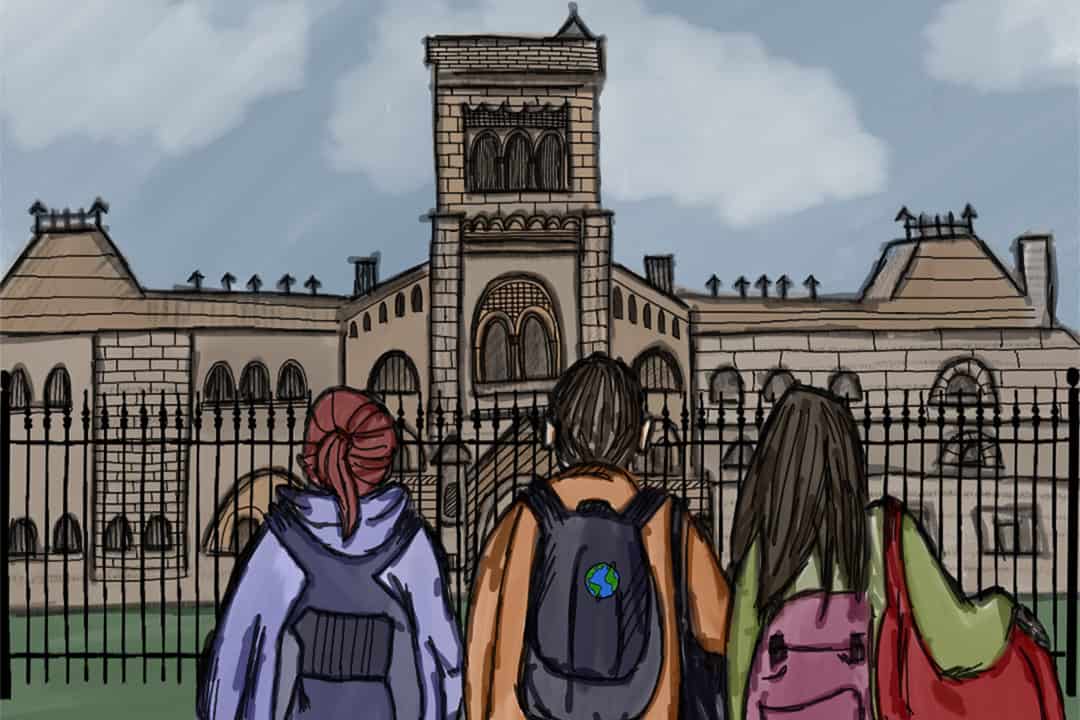On September 18, the Canadian federal government announced plans to tighten regulations on international study permits and restrict eligibility for international graduate students to acquire work permits.
Immigration, Refugees and Citizenship Canada (IRCC) aims to reduce the number of temporary residents in Canada, impose employer compliance, and mitigate issues of fraudulent activities.
In interviews with The Varsity, international students expressed their views on the new policy and its potential impacts on U of T’s international student community.
Policy breakdown
In January, the IRCC announced that it would reduce international undergraduate study permits by 35 per cent. The automatic issue of open work permits to the spouses of undergraduates was also discontinued. Canada introduced this student cap as a temporary resolution until 2025, but the policy has now been extended to 2026.
On September 18, the IRCC pledged to further reduce the overall intake of international students from 485,000 in 2024 to 437,000 in 2025. This would amount to a 10 per cent reduction of international students from 2024.
Starting November 1, applicants for the Post-Graduation Work Permit have to pass the Canadian Language Benchmark — a tool used to assess language ability in English. University graduates need a score of seven points and college graduates need a score of five points out of 10. Minister of Immigration, Refugees and Citizenship of Canada Marc Miller has estimated the number of issued permits to decrease by 175,000 due to this policy measure.
There are restrictions on eligibility for spousal work permits for graduate students, alongside the requirement of obtaining a Provincial Attestation Letter.
Impact on U of T
Since 2023, U of T has welcomed approximately 20,000 undergraduate international students and 5,000 graduate international students from across 200 countries. This means the federal government’s new policies could potentially impact around 25 per cent of U of T’s student body.
Not only do these policies impact future international students but also U of T. These restrictions could potentially harm enrolment rates at U of T as expected international students might not receive their visas.
Student opinions
In emails to The Varsity, international students expressed their concerns about how harmful these policies could be to their future in Canada.
U of T student Nandini Singh wrote that “these policies will impact the students who now want to stay in Canada and work after their graduation.”
“This is especially because this adds a limit or barrier to people with a language challenge, even if they are skilled and educated in their own field,” Singh added. “Additionally, it will reduce the diversity of international students and the useful contributions of skilled international workers who may contribute to Canada.”
Second-year economics and political science student Pranav Chaturvedi — who is considering pursuing higher education in Canada, the US, or the UK — feels deterred by the new policies.
Chaturvedi wrote that,“If this policy will truly serve to have heavy-bearing ramifications on any future admissions experience I have with Canadian universities, my desire to attend in the UK or the US will only increase.”
He added that he anticipates “certain economic implications due to the reduction in study permit offerings,” explaining that U of T will favour comparatively wealthy students who won’t need financial aid over those who are more economically disadvantaged.
“In terms of the impacts felt by the general [U of T] community, I foresee both positive and negative sentiments arising,” Chaturvedi noted.
Vedika Patil, a second-year domestic student studying economics, math, and statistics explained that “Limiting the number of international students would make the job market less competitive… as there would be fewer international students applying for the same jobs,” yet she also noted this would come with reduced diversity on campus.


